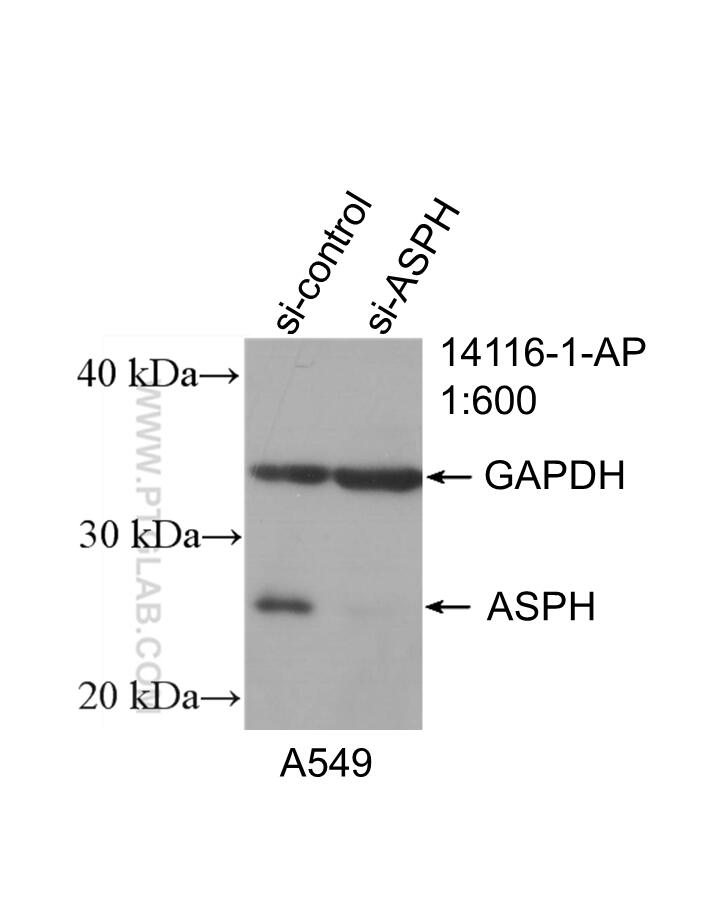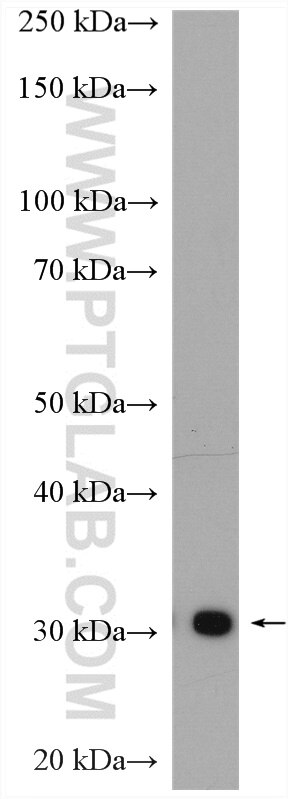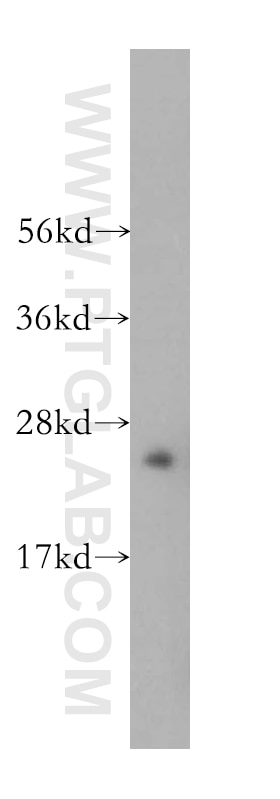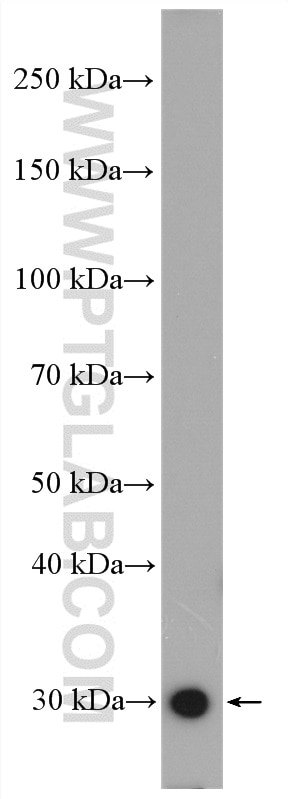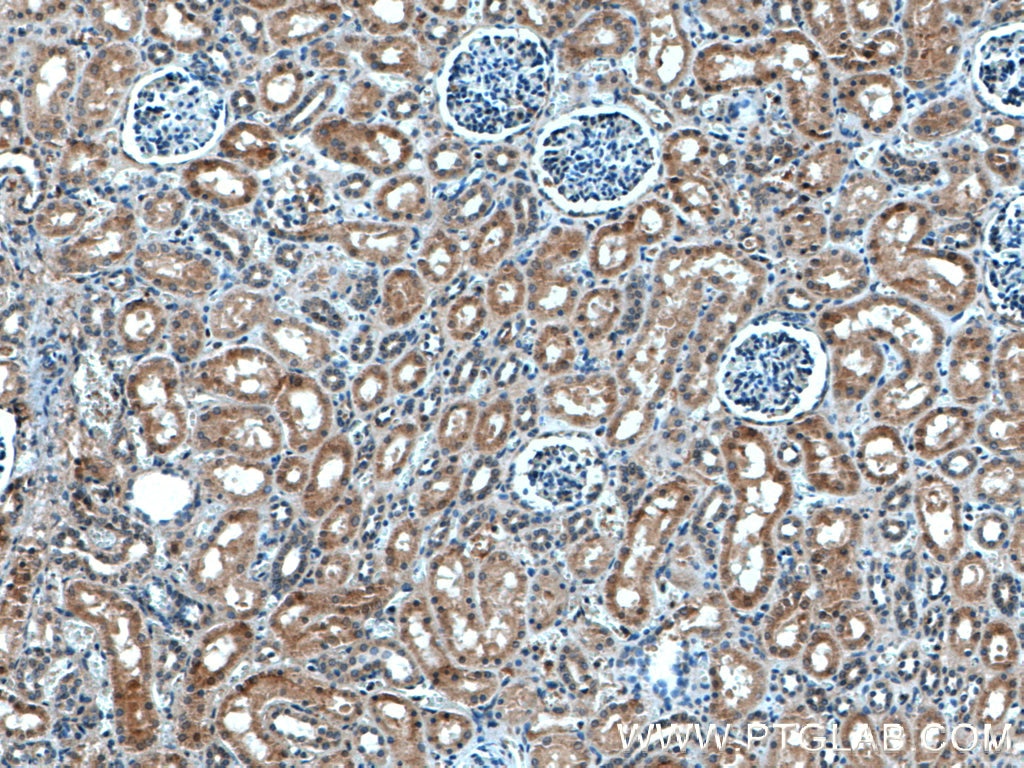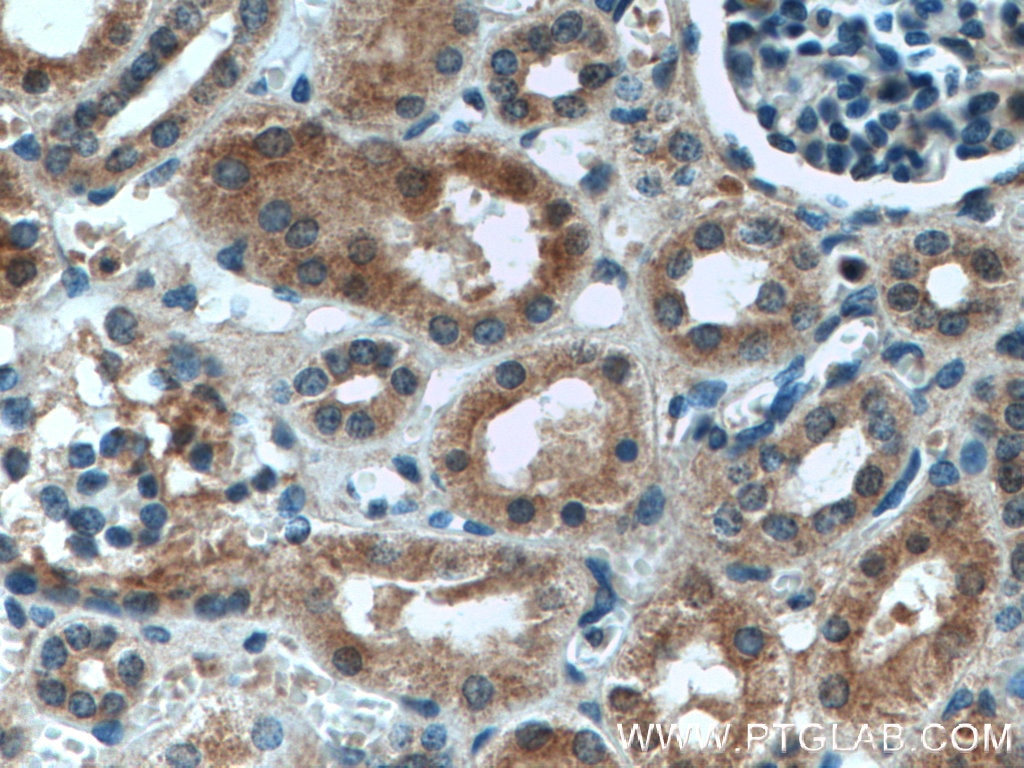- Phare
- Validé par KD/KO
Anticorps Polyclonal de lapin anti-ASPH
ASPH Polyclonal Antibody for WB, IHC, ELISA
Hôte / Isotype
Lapin / IgG
Réactivité testée
Humain, souris et plus (1)
Applications
WB, IHC, ELISA
Conjugaison
Non conjugué
N° de cat : 14116-1-AP
Synonymes
Galerie de données de validation
Applications testées
| Résultats positifs en WB | tissu cérébral de souris, cellules A549, tissu cérébral humain |
| Résultats positifs en IHC | tissu rénal humain, il est suggéré de démasquer l'antigène avec un tampon de TE buffer pH 9.0; (*) À défaut, 'le démasquage de l'antigène peut être 'effectué avec un tampon citrate pH 6,0. |
Dilution recommandée
| Application | Dilution |
|---|---|
| Western Blot (WB) | WB : 1:200-1:1000 |
| Immunohistochimie (IHC) | IHC : 1:50-1:500 |
| It is recommended that this reagent should be titrated in each testing system to obtain optimal results. | |
| Sample-dependent, check data in validation data gallery | |
Applications publiées
| KD/KO | See 1 publications below |
| WB | See 4 publications below |
| IHC | See 1 publications below |
Informations sur le produit
14116-1-AP cible ASPH dans les applications de WB, IHC, ELISA et montre une réactivité avec des échantillons Humain, souris
| Réactivité | Humain, souris |
| Réactivité citée | rat, Humain |
| Hôte / Isotype | Lapin / IgG |
| Clonalité | Polyclonal |
| Type | Anticorps |
| Immunogène | ASPH Protéine recombinante Ag5265 |
| Nom complet | aspartate beta-hydroxylase |
| Masse moléculaire calculée | 86 kDa |
| Poids moléculaire observé | 26 kDa |
| Numéro d’acquisition GenBank | BC066929 |
| Symbole du gène | ASPH |
| Identification du gène (NCBI) | 444 |
| Conjugaison | Non conjugué |
| Forme | Liquide |
| Méthode de purification | Purification par affinité contre l'antigène |
| Tampon de stockage | PBS with 0.02% sodium azide and 50% glycerol |
| Conditions de stockage | Stocker à -20°C. Stable pendant un an après l'expédition. L'aliquotage n'est pas nécessaire pour le stockage à -20oC Les 20ul contiennent 0,1% de BSA. |
Informations générales
Aspartate-β-hydroxylase (ASPH; termed AAH in older literature) has been implicated in the cross-talk among all of these signaling pathways. Correspondingly, ASPH is expressed at high levels in many malignant neoplasms of different histogeneses. It has the 86-141 kDa bands (native and phosphorylated forms), cleavage products of 35-56 and 22-26 kDa.(PMID:27981247/PMID: 10956665)
Protocole
| Product Specific Protocols | |
|---|---|
| WB protocol for ASPH antibody 14116-1-AP | Download protocol |
| IHC protocol for ASPH antibody 14116-1-AP | Download protocol |
| Standard Protocols | |
|---|---|
| Click here to view our Standard Protocols |
Publications
| Species | Application | Title |
|---|---|---|
EBioMedicine Hydroxylase Activity of ASPH Promotes Hepatocellular Carcinoma Metastasis Through Epithelial-to-Mesenchymal Transition Pathway.
| ||
J Immunol Res Construction and Characterization of Adenovirus Vectors Encoding Aspartate-β-Hydroxylase to Preliminary Application in Immunotherapy of Hepatocellular Carcinoma. | ||
Heliyon Labyrinthin: A distinct pan-adenocarcinoma diagnostic and immunotherapeutic tumor specific antigen. | ||
Biochem Pharmacol Inhibition of circular RNA ASPH reduces the proliferation and promotes the apoptosis of hepatic stellate cells in hepatic fibrosis |
